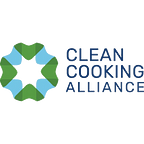Cooking — A dangerous activity for millions of women
A mother in rural India helps highlight the dramatic — and deadly — impacts of cooking with open fires and heavily-polluting fuels like animal dung.
Covered in cow dung, Shusheela’s hands move constantly, forming “cakes” from the manure she spent hours gathering from nearby fields. Shusheela, who says she’s “around 60 years old,” squats as she works, dwarfed by a head-high wall of dung cakes.
“I spend a lot of time gathering dung, preparing it, and then cooking with it, breathing in all the smoke. My husband doesn’t like food cooked any other way.”
A TOXIC RECIPE
Around the world, an unthinkable number of people still depend on animal dung as a fuel to cook with — over 15 million in India alone, more than the populations of New York City and London combined.
The manure, produced by livestock and typically collected by women and children, is first mixed with water and hay or crop residue. The resulting mixture is then formed into cakes or patties and set aside to dry and store until it’s time to cook. The output of this centuries-old practice can be seen on rooftops, fence lines, and roadsides in rural villages across many parts of Asia and Africa.
COOKING CAN KILL
When the dung mixture is burned, it creates clouds of toxic smoke, equivalent to hundreds of cigarettes. Because the dung is cooked in three-stone fires or traditional stoves, such as the homemade chula Shusheela uses, much of the smoke ends up in the eyes and lungs of the cooks and their families. Emissions from cooking with fuels like dung, charcoal, and wood are linked to more than 2.6 million premature deaths each year and cause deadly chronic and acute health effects such as child pneumonia, cancer, cataracts, and heart disease.
The smoke that isn’t inhaled drifts into neighboring homes, communities, and far beyond. In India and China, household air pollution contributes up to 30 percent of outdoor air pollution. India’s white marvel, the Taj Mahal, recently turned a sickly shade of brownish-yellow due to air pollution, much of it from dung-fueled cooking fires. The Taj is just a three-hour drive from Shusheela’s home.
TIME POVERTY
Far too often, women carry the burden of cooking in the home — as well as traveling far to gather fuel to cook with. Over 95 percent of cooking in developing countries is done by women, who can spend up to 8 hours a day cooking and collecting dung or wood.
Putting in so many hours on unpaid work leaves little time for earning income, pursuing an education, caring for family, or resting. This debilitating lack of time is known as time poverty, a global issue that carries widespread impacts on women, their families, and their communities.
CLEAN COOKING
The good news is it doesn’t have to be this way. Around the world, including in India, more and more people are gaining access to cleaner, more efficient cookstoves and fuels. Some stoves burn solid fuels like dung, wood, and charcoal more cleanly than traditional models, cutting harmful emissions by 80 percent to 90 percent. Other stoves rely on cleaner burning fuels such as biogas, ethanol, liquefied petroleum gas, solar power, and electricity, which can improve health, protect the environment, and free up hours of a woman’s day.
A new report from the Global Alliance for Clean Cookstoves captures the widespread progress being made to address this issue. Since 2010 when the Alliance was formed, more than 80 million clean and/or efficient cookstoves and fuels have been distributed. This includes 20 million cooking gas connections made in India under a program launched last year by Prime Minister Modi’s government that is expected to reach Shusheela’s community next year.
A FIXABLE ISSUE
Despite significant progress, challenges remain. A sobering report released this year from Sustainable Energy for All showed a multi-billion dollar investment gap for what is needed to deliver universal access to clean cooking energy. Without additional resources to address this issue, the world is unlikely to meet the poverty, health, energy, and gender goals outlined in the Sustainable Development Goals.
Shusheela knows all too well how far this problem is from being fixed. She can see it every time she sinks her hands into a pile of cow dung. She can taste it with every breath of smoke she inhales while preparing her family’s food.
While the knowledge and tools exist to fix this global scourge, a lack of resources, support, and political will is slowing progress and putting hard-fought gains at risk. It’s far past time to empower millions of women to change the way they cook. In a world of self-driving cars and artificial intelligence, no one should have to spend her day making dung cakes from cow manure.
Originally published at www.unfoundation.exposure.co/
